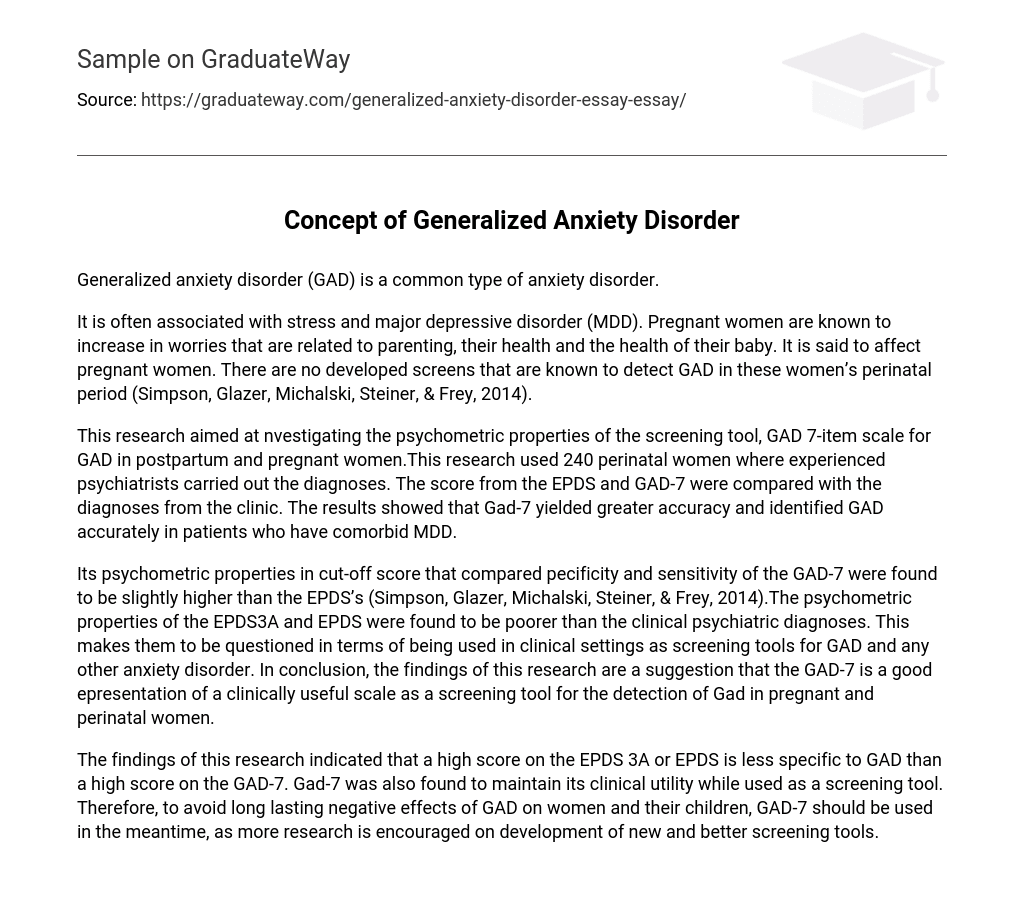Generalized anxiety disorder (GAD) is a common type of anxiety disorder.
It is often associated with stress and major depressive disorder (MDD). Pregnant women are known to increase in worries that are related to parenting, their health and the health of their baby. It is said to affect pregnant women. There are no developed screens that are known to detect GAD in these women’s perinatal period (Simpson, Glazer, Michalski, Steiner, & Frey, 2014).
This research aimed at nvestigating the psychometric properties of the screening tool, GAD 7-item scale for GAD in postpartum and pregnant women.This research used 240 perinatal women where experienced psychiatrists carried out the diagnoses. The score from the EPDS and GAD-7 were compared with the diagnoses from the clinic. The results showed that Gad-7 yielded greater accuracy and identified GAD accurately in patients who have comorbid MDD.
Its psychometric properties in cut-off score that compared pecificity and sensitivity of the GAD-7 were found to be slightly higher than the EPDS’s (Simpson, Glazer, Michalski, Steiner, & Frey, 2014).The psychometric properties of the EPDS3A and EPDS were found to be poorer than the clinical psychiatric diagnoses. This makes them to be questioned in terms of being used in clinical settings as screening tools for GAD and any other anxiety disorder. In conclusion, the findings of this research are a suggestion that the GAD-7 is a good epresentation of a clinically useful scale as a screening tool for the detection of Gad in pregnant and perinatal women.
The findings of this research indicated that a high score on the EPDS 3A or EPDS is less specific to GAD than a high score on the GAD-7. Gad-7 was also found to maintain its clinical utility while used as a screening tool. Therefore, to avoid long lasting negative effects of GAD on women and their children, GAD-7 should be used in the meantime, as more research is encouraged on development of new and better screening tools.





